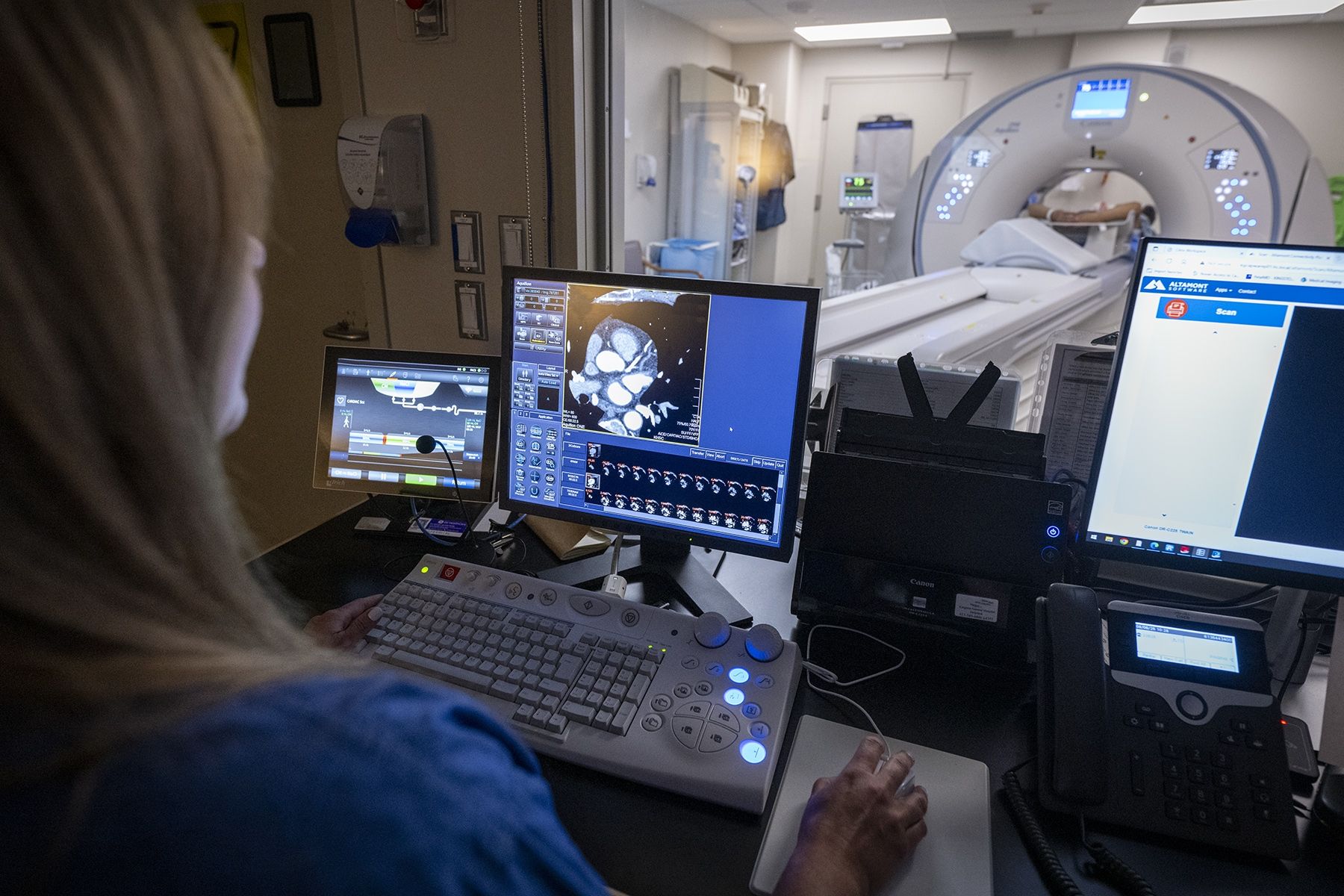
A groundbreaking Artificial Intelligence (AI) tool used to diagnose coronary artery disease on CT scans is about to transform cardiac care at Kingston Health Sciences Centre (KHSC)—and it’s all thanks to the generosity of local donor Stephen Sorensen.
Mr. Sorensen’s philanthropic gift of $100,000 is funding the launch of Heartflow, a revolutionary AI-based technology that allows radiologists and cardiologists to measure how the blood flows through a patient’s coronary arteries, using only a non-invasive CT scan.
KHSC is the first hospital in Canada to offer this leading-edge diagnostic tool, which is already in use in the United States and the United Kingdom.
"Thanks to Stephen Sorensen’s visionary support, KHSC is able to invest in state-of-the-art technology that is improving care for our patients," says KHSC CEO Dr. David Pichora. "His belief in the power of innovation, particularly in the field of medical imaging, is creating a healthier future for our patients—and we are grateful for his remarkable leadership and generosity."
For patients living with chest pain and suspected coronary artery disease, Heartflow provides a safer, faster and more accurate diagnosis of low blood flow. It also helps medical teams determine how severe a blockage in a patient’s artery may be—without having to undergo an invasive procedure.
Traditionally, many patients had to undergo cardiac catheterization, an invasive test that involves threading a wire into the arteries to measure blockages. Now, using the AI capabilities of Heartflow, physicians can make the measurement directly from a CT scan.
This technology determines whether a blockage restricts blood flow, and whether the patient requires further treatment like inserting stents or undergoing bypass surgery to remove the blockage.
“This AI tool is a game-changer for the way we triage patients,” says Dr. Omar Islam, Head of Diagnostic Radiology at KHSC and Queen's University. “Before, we had to send everyone with a possible significant blockage to the cardiovascular catheterization (cath) lab just to see if the flow was reduced. Now, we can do that non-invasively with Heartflow. If the flow is normal, the patient avoids an invasive procedure entirely. It helps our capacity in the cath lab and saves the health-care system money. From a patient perspective, it spares them a procedure they may not have needed.”
That’s a win not only for patient comfort and safety but also for the health-care system. Studies have shown that Heartflow can reduce unnecessary catheterizations by up to 30 per cent.
“The understanding that Heartflow brings about coronary blood flow to the muscle of the heart is a tremendous advantage,” says Dr. Cathy McLellan, Cardiac Program Medical Director at KHSC and Head of the Division of Cardiology at Queen’s University. “It allows many of our patients to avoid invasive procedures to measure blood flow, and it helps accurately quantify how much the blood flow has been reduced in those patients who need invasive medical or surgical care.”
Heartflow is expected to be fully operational at KHSC this month.
Teams at KHSC are already preparing to study the technology’s effectiveness in Canadian patients, with hopes to publish their findings and inspire adoption in hospitals across the country.
With a major financial donation through the University Hospitals Kingston Foundation to fund the initial rollout, and the promise of annual renewals to support its ongoing use, Mr. Sorensen’s gift will ensure that patients in southeastern Ontario benefit from the very best in cardiac diagnostics—without delay, and without unnecessary risk.
Mr. Sorensen explained, “I’m always looking for innovative tools that can have an immediate impact on patients’ lives and Heartflow fits the bill.”
Sorensen went on to say “That combining advanced CT imaging with AI-driven flow analysis, Heartflow helps to illustrate how well blood is flowing to a patient’s heart without an invasive procedure. It means faster answers and better care, with less risk."
This isn’t Mr. Sorensen’s first-time funding cutting-edge technology at KHSC. In January, a gift helped KHSC to become the second hospital in Ontario to have a portable magnetic resonance imaging (MRI) machine for clinical use in its Intensive Care Unit (ICU). Mr. Sorensen has also previously supported radiology at KHSC, including donations in support of the purchase of an MRI machine which will be located at KHSC’s Breast Imaging Kingston clinic.



